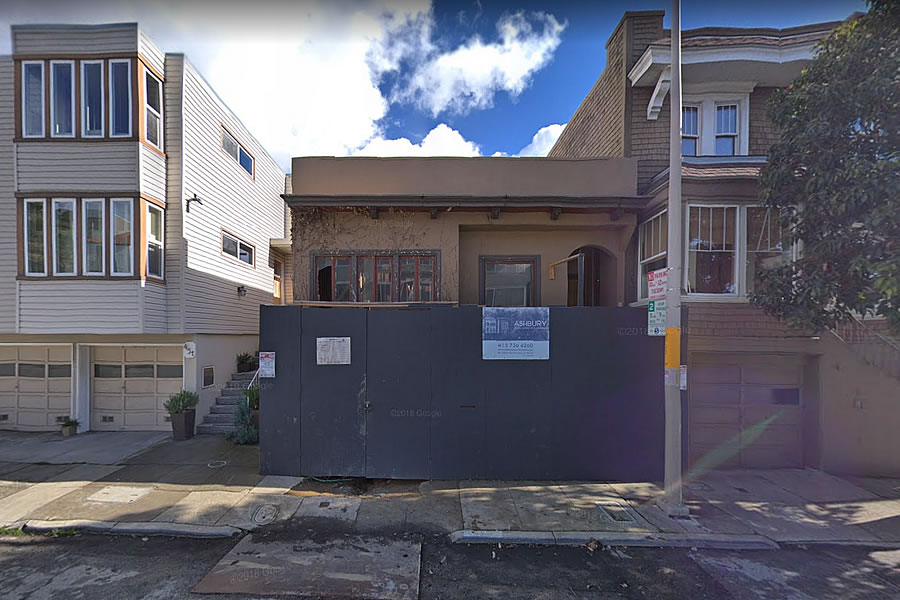While the former president of San Francisco’s Building Inspection Commission, Rodrigo Santos, has been indicted for bank fraud, as charged last year, the City Attorney’s investigation into permitting, inspection and contracting abuses within the Department of Building Inspection and SFPUC is still going strong.
As we first reported back in 2018:
San Francisco’s City Attorney, Dennis Herrera, has…filed suit against construction engineering firm Santos & Urrutia Associates, its principals and several clients and contractors over “an elaborate scheme” to excavate and expand under multiple San Francisco homes without securing proper permits and employing forged documents, lies and fake plans to trick inspectors and City agencies.
Rodrigo Santos, the firm’s chief financial officer, is a former president of the Building Inspection Commission. Albert Urrutia, the firm’s chief executive officer, has sat on the City College Board of Trustees and the City’s Workforce Investment Board. And according to the complaint, “Santos’ and Urrutia’s decades of experience and familiarity with the Department of Building Inspection was used to circumvent regulation and oversight by that department and the Planning Department.”
And while the civil lawsuit, which has yet to be resolved, was originally tied to three San Francisco properties in specific (147 Marietta Drive, 601A Fell Street and 457 Roosevelt Way, which is pictured above), it was subsequently expanded to include a total of nine properties and a separate criminal investigation into San Francisco’s former Director of Public Works, Mohammed Nuru was launched as well.

“The check fraud plot involved Santos requesting partially filled out checks from clients, which were signed and made payable to City departments but with the dollar amount blank.”
Is this not a huge red flag to clients? Or is this just how this often works, to minimize back and forth (e.g. I’m imaging that you could tell clients that option 1) is to bug them for a check once amounts are known, or 2) trust them to fill it out with something reasonable once amounts are known)? Why not fill in amounts up front?
Clients probably figured there wasn’t any risk as long as their checks were made out to the DBI. Worse case, they’d get a refund from the city for any overpayment.
This is the kicker: “Santos would…forge the endorsement of the payee City department and then deposit the checks in his personal checking account. Occasionally Santos would instead change the payee name on the check to his own, misspelled name. For example, he would change “DBI” to “RODBIGO SANTOS” and then deposit the check in his account.”
“RODBIGO SANTOS” is a stone cold classic in the annals of city corruption. It’s really a shame that the overt corruption and general chaos of the Trump [era] meant this didn’t get nationwide attention.
What I don’t get– wouldn’t some of the clients eventually notice that their returned checks (or digital copies, nowadays) had changed payee names?
I could see this working once or twice, but how the hell did the bank never catch this*? I’ve had totally run-of-the-mill misspellings on checks come back to me before. I mean, look at this example.
*unless they eventually did and are working with investigator.
I think I’ll change my name to damien hIRSt and then go fishing for mail on April 15.
I’ve deposited some checks in my day… and I feel like you can get away with a lot. Misspellings galore. Checks made payable to one party that ended up in a neighboring small business’s mailbox– and were endorsed and deposited by them with the bank not batting an eye! (Discovered when they sent another bill–“oh I paid you!”–“no you didn’t”–“yes, I did, here’s the check I wrote you which you cashed, and there’s your stamp on it”–“oh wait, that’s not my stamp, that’s my neighbor.”)
Banks are a mess.
It was dependent, I imagine, on the fact that few personal accounts have the anti-fraud safeguards that even basic business accounts have: check matching is pretty basic…certainly amounts, less often – but still commonly – payees.
Chumps selling out the city for peanuts solving the housing “crisis” with eyesores and undermined foundations. The real SF.
UPDATE: Having pled guilty to bribery and fraud, Rodrigo Santos was sentenced to 30 months of incarceration by a federal judge last week. At the same time, the City is moving forward with its civil case against Mr. Santos, which alleges that he defrauded and stole money from clients, completed unpermitted work, illegally excavated under neighboring properties, forged signatures, and misappropriated licenses.